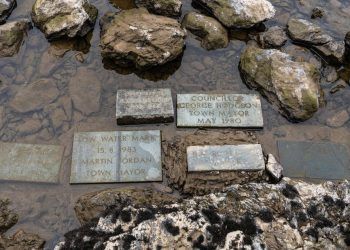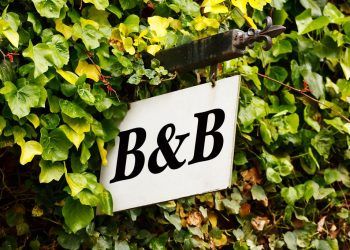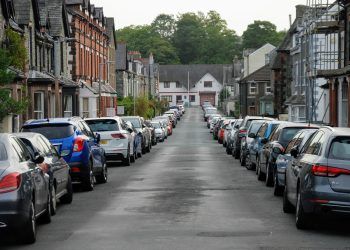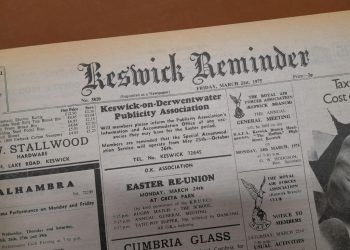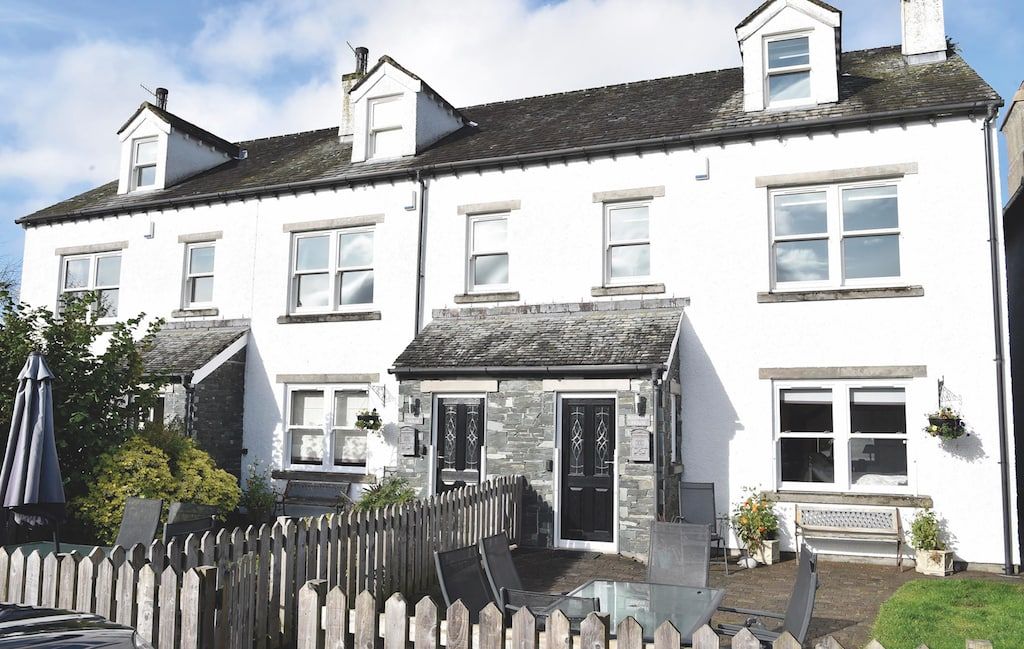
Three properties for sale in an area of Keswick are at the centre of controversy after it was revealed they have been used as holiday lets, despite having local occupancy clauses attached.
For sale signs have gone up at Mulberry House, Cranberry House and Blueberry House, all in the Bridge Court area of the town, and their sale particulars say: “This property has a local occupancy restriction and is being sold with no onward chain”.
But each of the properties all have rave reviews on TripAdvisor — the world’s largest travel platform with a website and mobile app containing user generated content logging peoples’ experiences in hotels and guest houses.
Mulberry House — a four bedroom mid-terrace townhouse with a £325,000 price tag — has a number of five-star reviews and is described by travellers on Trip Advisor as being “brilliant dog friendly accommodation” and an “excellent place to stay.”
Cranberry House — a four double bedroom end terrace property being sold for £345,000 — is also popular on Trip Advisor and is lauded as being a “fabulous cottage” in the “perfect location for town and theatre.”
And Blueberry House — a four double bedroom end-of-terrace property selling for £345,000 — is praised for being “a beautiful house in a fantastic location” and “a great base for a family holiday.”
Local occupancy clauses (section 106 agreement) are placed on residential properties in Keswick by the Lake District National Park Authority.
They are mainly used to prevent properties being used as a second or holiday home and to maintain a resident population.
They also have the effect of reducing the demand for a property, making them cheaper than their unrestricted counterparts.
The LDNPA confirmed that all three properties are covered by a Cumbria wide local occupancy clause and are currently vacant.
A Lake District National Park Authority spokesman said: “We can confirm that these houses are subject to a Cumbria-wide local occupancy condition.
“We have previously investigated a complaint that the houses were being used for holiday accommodation purposes but we understand that they are currently vacant.
“If they are let out for holiday purposes in the future then this could represent a breach of planning control and risk formal action.”
Allan Daniels, a member of Keswick Town Council and the Keswick Community Housing Trust, said he was “shocked at this flagrant disregard of the 106 local occupancy rules.
“Unfortunately, this happens so many times that it has become the norm,” said Mr Daniels.
“In Keswick, 35 per cent of all housing is used as second homes or holiday lets and it is frustrating for me as a member of Keswick Community Housing Trust, to see housing needs for local people disregarded.”
Keswick mayor Paul Titley said the 106 clause has a limited future under new planning laws being outlined by Parliament.
“It will be a tragedy for the town and give us less protection than we have now,” he said, adding: “It’s unforgivable to buy a house with a 106 on it knowing that it should only be used by people with a connection to the town and they can be bought at a lower price.
“The LDNPA has no one wandering around checking up on properties that have a 106 on them.
“It really relies on reports from neighbours. I can’t recall when they (LDNPA) took action. It also requires honour among buyers and sellers, which seems lacking.”
Keswick county councillor Tony Lywood said that the houses were being used as holiday lets up until February this year.
“These houses were built with the express purpose that they were to be used by local families who work and live in the locality,” he said.
“To flout these restrictions is an absolute disgrace and I shall be making sure that enforcement action is taken against anyone who is misusing a house with a local occupancy clause on it.
“What is equally disgraceful is that the Lake District National Park Authority seems to have no list or database of all the houses within the park with local occupancy.
“While the LDNPA produces reams and volumes of reports on all manner of things within the park they are unable to produce a simple definitive ‘local occupancy list’ much of which still appears to still be on microfilm.
“This is at a time when nearly 50 per cent of our local housing stock is being holiday let and one in two houses sold is going to someone who is not permanently resident.
“You really could not make this charade up and the LDNPA should be ashamed of themselves. As a local councillor I have to ask whether the LDNPA really cares about preserving our community or just pays lip service to it.”
Westmorland and Lonsdale MP Tim Farron, who is an outspoken opponent of second homes in the Lake District, said local occupancy clauses were there to ensure that homes for locals remain in the hands of local people.
He said that in the era of Airbnbs, there is an increasing number of properties becoming holiday homes compared to five to 10 years ago.
“Between 40 to 50 per cent of housing stock in the Lake District national park is not permanently lived in so we have got to do as much as we can to protect those that are,” he said.
A spokesperson at Keswick Cottages, who let out the properties on behalf of the owners, said that after liaising with the LDNPA they would be removing the properties from their website.
The Reminder attempted to make contact with the owners through Keswick Cottages but was told that they did not wish for their details to be passed on to the press.


